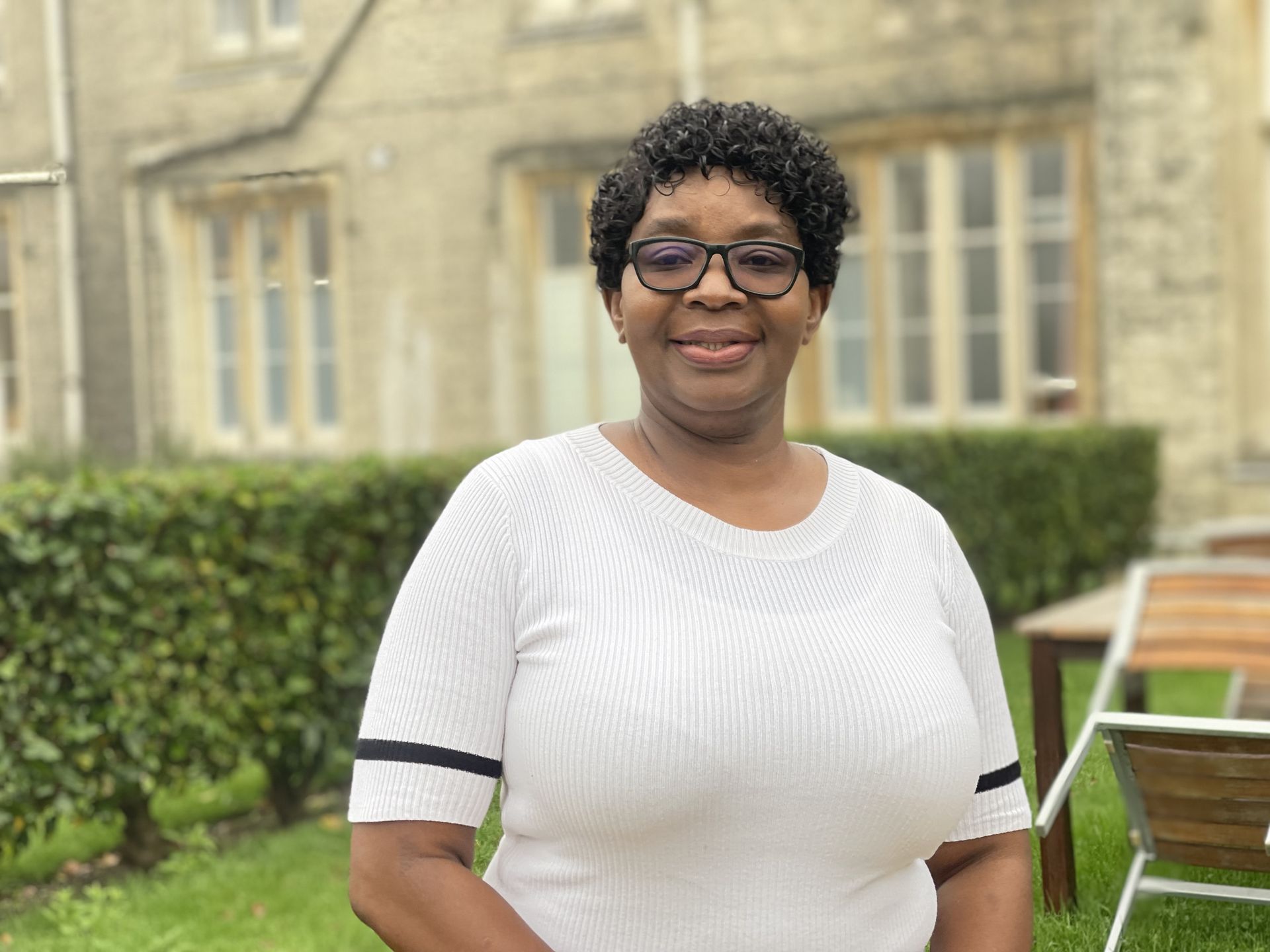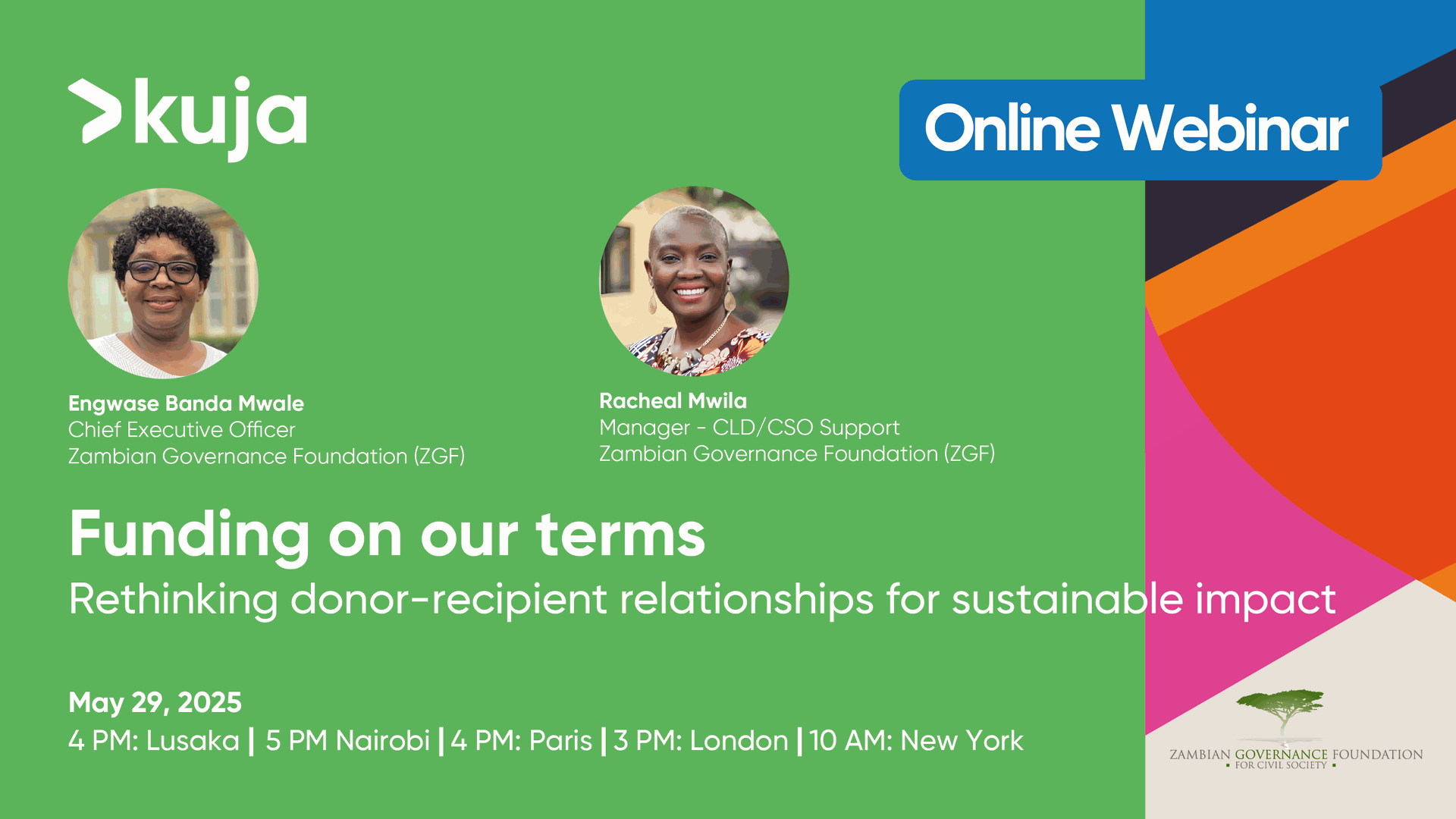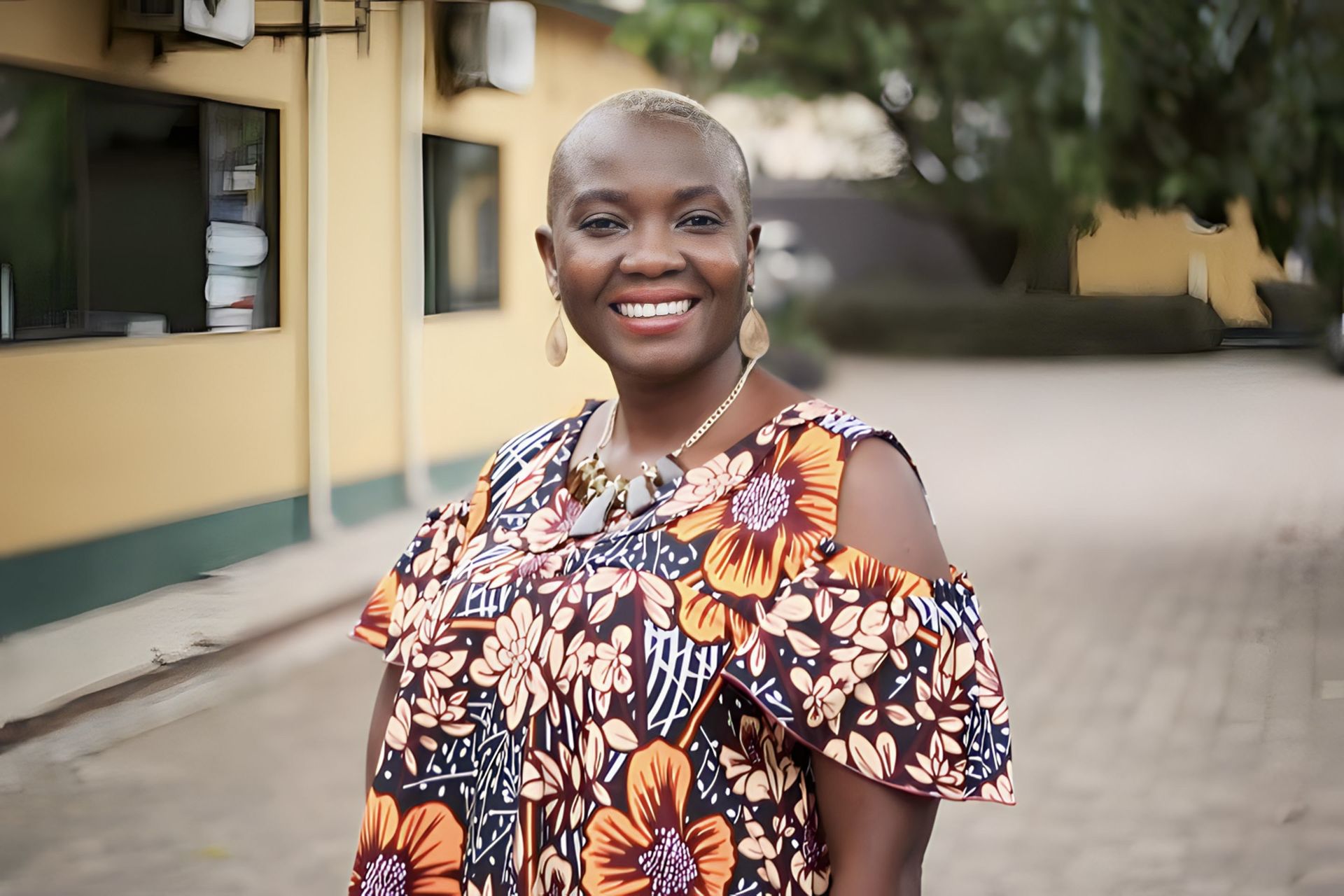Eventos
Los eventos a continuación se poblan de varios sitios externos que publica eventos de donaciones relevantes para organizaciones como la tuya. También tenemos interna eventos de Kuja. Utilice los filtros para explorar los eventos que son interesantes para usted y aplicar a aquellos que desea asistir!
- Adult Welfare
- Adult Welfare
- Animal Welfare
- Animal Cruelty
- Animal Experimentation
- Animal Rights
- Animal Welfare
- Arts & Culture
- Art
- Art Conservation
- Arts & Culture
- Culture
- Curating
- Documentary Making
- Film
- Galleries
- Games
- History
- Humanities
- Libraries
- Literature
- Museum
- Music
- Performing arts
- Podcasting
- Poetry
- Public arts
- Storytelling
- Visual arts
- Children & Youth
- Child Abuse
- Child Development
- Child Neglect
- Child Nutrition
- Child Participation
- Child Protection
- Child Rights
- Child Soldiers
- Child Survival
- Children & Youth
- Children with Disabilities
- Children’s Education
- Children’s Health
- Early Childhood Development and Education
- Early Marriages
- Orphans & Vulnerable Children
- Research
- School Health
- Sexual and Gender-Based Violence
- Youth
- Youth Economic Empowerment
- Youth Empowerment
- Youth Engagement
- Youth Leadership
- Youth Participation
- Youth Policies
- Youth Representation
- Youth and Climate Change
- Climate Change
- Agroforestry
- Biodiversity
- Biodiversity and Ecosystems
- Carbon Credits
- Chemical Risks
- Climate Adaptation
- Climate Change
- Climate Financing
- Climate Mitigation
- Climate Policy
- Climate Research
- Climate Resilience
- Conservation
- Decarbonization
- Desertification
- Droughts
- Early Warning Systems
- Eco-Friendly Production
- Eco-tourism
- Emerging Technologies
- Emission Reduction
- Environment
- Environmental Justice
- Environmental, Social and Governance
- Forest Management/ Conservation
- Fossil Fuel Management
- Grassroots Climate Response
- Habitat Restoration
- Hazardous Waste
- Invasive Species Control
- Just Energy Transition
- Land Degradation
- Land Restoration
- Marine conservation
- Mountain Ecosystems
- Mountains
- Natural Resource Management
- Ocean Conservation
- Rangelands
- Recycling
- Reforestation
- Renewable Energy
- Sea Conservation
- Sewage Management
- Solid Waste Management
- Sustainable Fashion
- Sustainable Tourism
- Sustainable Use
- Tree Planting
- Urban Green Infrastructure
- Urban Sustainability
- Waste Collection
- Waste Management
- Water Management
- Water Pollution
- Wildlife Conservation
- Communications and Advocacy
- Advocacy
- Communications
- Communications and Advocacy
- Media
- Storytelling
- Community Development
- Community Development
- Education
- Adult Literacy
- Alternative Education
- Digital Literacy
- Early Childhood Development and Education
- Education
- Education Policy
- Education Research
- Education Technologies
- Education Workforce
- Education in Emergencies
- Foundational Learning
- General Education
- Girls’ Education
- Higher Education
- Inclusive Education
- Information and Communication Technology
- Language Education
- Natural Sciences
- Post-Secondary Education
- Primary Education
- School Supplies
- Science, Technology, Engineering, and Mathematics
- Secondary Education
- Skills Development
- Social and Emotional Learning
- Social and Human Sciences
- Technical / Vocational Training
- Elderly
- Age Discrimination
- Elderly
- Elderly People
- Healthy Ageing
- Older People Rights
- Food and Agriculture
- Agricultural Machinery
- Agricultural Research
- Agriculture
- Agro Ecology
- Agroecology
- Farmer’s Rights
- Fishing
- Food Aid
- Food Feminism
- Food Policies
- Food Security
- Food Sovereignty
- Food Systems
- Food Systems Research
- Food Value Chains
- Food and Agriculture
- Genetically Modified Crops
- Irrigation Systems
- Markets and Trade
- Organic Farming
- School Feeding
- Seed Systems
- Soil Health Improvement
- Sustainable Agriculture
- Sustainable Farming
- Gender Equality
- Discriminatory Policies
- Domestic Workers
- Early Marriages
- Early Pregnancy
- Feminism
- Gender
- Gender Equality
- LGBTQIA+ Equality
- Leadership at Work
- Legal Protection
- Maternal and Child Healthcare
- Research
- Sex Work
- Sexual and Gender-Based Violence
- Sexual and Reproductive Health Rights
- Women & Girls
- Women and Girls in STEM
- Women with Disabilities
- Women’s Decision Making
- Women’s Empowerment
- Women’s Health
- Women’s Leadership
- Women’s Livelihoods
- Women’s Public Participation
- Women’s Representation
- Women’s Rights
- Governance
- Activism
- Democracy
- Diplomacy
- Elections
- Foreign Policy
- Governance
- National Security
- Political Movement
- Public Policy
- Healthcare
- Autoimmune Diseases
- Basic Care
- Chronic Illnesses
- Communicable Diseases
- Community Health
- Critical Illnesses
- Disability Healthcare
- Disease Surveillance
- Environmental Health
- Epidemiology
- Family Planning
- Food Safety
- HIV/AIDS
- Health Financing
- Health Promotion
- Healthcare
- Healthcare Technologies
- Hunger Alleviation
- Immunization
- Infectious Diseases
- Malaria
- Maternal Health
- Maternal and Child Health Care
- Maternal and Infant Health Care
- Menstruation
- Mental Health
- Neglected Tropical and Vector-Borne Diseases
- Newborn Health
- Non-Infectious Diseases
- Noncommunicable Diseases
- Nutrition
- Obesity
- Oral Health
- Pandemic
- Physical Health
- Primary Health
- Public Health
- Reproductive Health
- Research
- Road Safety
- Sexual Health
- Sexual and Reproductive Health and Rights
- Sexually Transmitted Infections (STIs)
- Sickle Cell Disease
- Soil-Transmitted Helminth Infections
- Substance Abuse
- Traditional Medicine
- Tuberculosis
- Vaccines
- Water, Sanitation and Hygiene
- Human Rights and Social Justice
- Child Protection and Welfare
- Civic Engagement
- Civil Society
- Disability Rights
- Disadvantaged Communities
- Diversity, Equity and Inclusion
- Economic Justice
- Ending Abuse
- Female Activists
- Gender-based Violence
- Human Rights
- Human Rights and Protection
- Human Rights and Social Justice
- Human Trafficking
- Indigenous Rights
- LGBTQ+ Rights
- Racial Justice
- Refugee Rights
- Research
- Sexual Exploitation and Abuse
- Social Action
- Social Justice
- Youth Rights
- Humanitarian Aid
- Asylum Seekers
- Camp Management
- Cash-Based Transfers
- Climate-Smart Disaster Risk Reduction
- Conflict Areas
- Detainees
- Disaster Management
- Disaster Relief
- Disaster Risk Preparedness and Response
- Disaster Risk Reduction and Recovery
- Displacement
- Early recovery
- Economic Recovery
- Emergency Response
- Essential Services
- Forced Displacement
- Healthcare in Emergencies
- Humanitarian Aid
- IDP Settlements
- International Humanitarian Law
- Medical Commodities
- Migration
- Natural Disasters Response
- Prisoners of War
- Protection
- Reconnecting Families
- Refugee Registration
- Relief Assistance
- Research
- Resettlement
- Resilience Building
- Rights of People in Conflict
- Shelter
- Torture Survivors
- Urban Refugees
- Water, Sanitation and Hygiene
- survivor-led community-based response (sclr)
- Leadership
- Leadership
- Leadership Building
- Leadership Mentorship
- Leadership Training
- Localization and Decolonizing Aid
- Decolonizing Aid
- Decolonizing Bilaterals
- Decolonizing INGOs
- Decolonizing Multilaterals
- Decolonizing Philanthropy
- Localization
- Localization and Decolonizing Aid
- Locally-Led Development
- Shifting Power
- Other
- Other
- Peace
- Community Security
- Conflict and Gender Sensitivity
- Inclusive Governance
- Peace
- Peace and Reconciliation
- Peacebuilding
- Peacekeeping
- Security
- Philanthropy , Giving and Development Aid
- Bilateral Aid
- Charity
- Community Philanthropy
- Development Aid
- Giving
- Individual Donations
- Multilateral Aid
- Philanthropy
- Philanthropy , Giving and Development Aid
- Religious Giving
- Social Entrepreneurship
- Social Impact
- Social Impact Investment
- Volunteering
- Poverty, Livelihoods & Economic Development
- Agribusiness
- Business Growth Programs
- Cash Programming
- Economic Development
- Economic Growth
- Economic and Social Development
- Economic and Social Inequalities
- Enterprise Development
- Entrepreneurship
- Extreme Poverty
- Financial Inclusion
- Income Generation Activities
- Income Security
- Inequity
- Informal Settlements
- Job Creation
- Job Skills Training
- Livelihood Development
- Livelihoods
- Loans
- Microfinance
- Poverty
- Poverty Alleviation
- Poverty, Livelihoods & Economic Development
- Private Sector Engagement
- Research
- Rural Development
- Safe Housing
- Savings
- Social Care
- Social and Economic Advancement
- Trade and Investment
- Underprivileged Communities
- Vulnerable People
- Women’s Entrepreneurship
- Workforce Development
- Public Safety
- Community Resilience
- Conflict Resolution
- Crime Prevention
- Homelessness
- Housing
- Infrastructure Development
- Legal Services
- Public Safety
- Religious Activity
- Church
- Church Outreach
- Church-Based
- Faith-Based Service Delivery
- Interfaith Cooperation
- Interfaith Dialogue
- Religious Activity
- Seva
- Waqf
- Zakat
- Renewable Energy
- Clean Cooking
- Clean Energy
- Electricity
- Emissions Reduction
- Energy Financing
- Energy Transition
- Geothermal Energy
- Green Energy
- Industry Decabornization
- Off-Grid Renewable Energy
- Public Financing
- Research
- Solar Energy
- Wind Energy
- Science, Information and Communication Technology
- Artificial Intelligence
- Biology
- Blockchain
- Digital Products
- Earth Sciences
- Engineering
- Free Internet
- Health Sciences
- Internet Access
- Internet Connectivity
- Internet of Things
- Safe Internet
- Science, Information and Communication Technology
- Science, Technology, Engineering, and Mathematics
- Sciences
- Software and IT
- Telecommunications
- Website Development
- Sports and Recreation
- Equal Play
- Sports and Recreation
- Sports for Development
- Sustainable Development
- Sustainability
- Sustainable Development
- Sustainable Improvements
- Water, Sanitation and Hygiene
- Adequate Sanitation
- Clean Water
- Development Water, Sanitation and Hygiene
- Emergency Water, Sanitation and Hygiene
- Proper Hygiene Practices
- Public Health Water, Sanitation and Hygiene
- Safe Drinking Water
- Safe Water
- Urban Water, Sanitation and Hygiene
- Water Access
- Water Management
- Water Resilience
- Water, Sanitation and Hygiene
El reciente seminario web, Financiación en nuestros términos: Replantear las relaciones entre donantes y receptores para lograr un impacto sostenible, celebrado el 29 de mayo de 2025, estuvo dirigido por la Zambian Governance Foundation (ZGF), y aportó poderosas ideas sobre la urgente necesidad de transformar el funcionamiento de la financiación del desarrollo.
En un contexto mundial en el que a menudo se habla de «transferir el poder», pero rara vez se practica de forma significativa, Engwase Banda Mwale, Director Ejecutivo de ZGF, y Racheal Mwila, Directora de Apoyo a CLD/OSC, defendieron de forma convincente la necesidad de centrar el liderazgo y la autonomía de las comunidades. Sus presentaciones cuestionaron los modelos convencionales de financiación basados en los donantes y explicaron cómo ZGF está desmantelando activamente estas estructuras obsoletas.
¿Qué hay que cambiar?
Racheal Mwila desmenuzó los problemas estructurales de la financiación tradicional:
Prioridades a corto plazo impulsadas por los donantes que limitan la innovación local
Excesivas cargas administrativas para las OSC
Poder de decisión limitado para las comunidades que realizan el trabajo real
En cambio, el ZGF es pionero en un nuevo modelo basado en el desarrollo dirigido por la comunidad y la concesión de subvenciones participativas. Sus tres fondos (Catalyst Fund, Civil Society Strengthening Fund y Community Resource Match Fund) hacen hincapié en la confianza, la flexibilidad y la implicación local.
Cambio de poder en la práctica
Engwase Banda Mwale framed ZGF’s journey as a transformation in mindset, not just strategy. Con más de 400 conexiones con OSC y alianzas crecientes, ZGF se plantea preguntas audaces como: ¿Qué pasaría si las comunidades hicieran la llamada y los financiadores respondieran?
Su «convocatoria de propuestas inversa» invierte el guión, permitiendo a las comunidades definir las prioridades mientras ZGF actúa como constructora de puentes y creadora de confianza. Este modelo desafía el papel tradicional de los intermediarios e invita a los donantes a co-crear en lugar de controlar .
Por qué es importante
Ante el declive de la confianza en las instituciones y el aumento de las desigualdades, la necesidad de financiar de forma diferente no es sólo moral, sino estratégica. Como subrayó Racheal, «no somos beneficiarios; somos filántropos». Este poderoso replanteamiento invita a las comunidades a apropiarse de sus soluciones, ampliar lo que funciona y liderar un cambio duradero.
Ver la grabación
¿Se perdió la sesión en directo? Puede ver la grabación completa del even aquí .
Oradores:

Engwase Banda Mwale, Directora Ejecutiva de la Fundación para la Gobernanza de Zambia (ZGF), es una líder visionaria con más de 20 años de experiencia en puestos de alta dirección en los sectores privado y de desarrollo. Apasionada defensora del empoderamiento de las mujeres, la igualdad de género, la buena gobernanza y el desarrollo sostenible, Engwase cuenta con una trayectoria demostrada impulsando cambios transformadores y promoviendo el crecimiento inclusivo. Gracias a su experiencia en género, liderazgo y desarrollo organizacional, ha sido fundamental en la formulación de políticas y programas que apoyan a las comunidades marginadas y promueven la sostenibilidad ambiental.
Racheal Mwila es una experimentada profesional en desarrollo y gerente de organizaciones de desarrollo lideradas por la comunidad y de la sociedad civil en ZGF, con más de una década de experiencia impulsando la acción climática. Su experiencia abarca la incidencia política frente al cambio climático, el desarrollo sostenible y la transformación de las dinámicas de poder para empoderar a las comunidades locales. Racheal cuenta con una trayectoria comprobada en la movilización de actores clave, el desarrollo de proyectos resilientes al clima y la promoción de la gestión ambiental. Su pasión reside en impulsar soluciones inclusivas e impulsadas por la comunidad para mitigar los impactos del cambio climático y garantizar un futuro sostenible.


